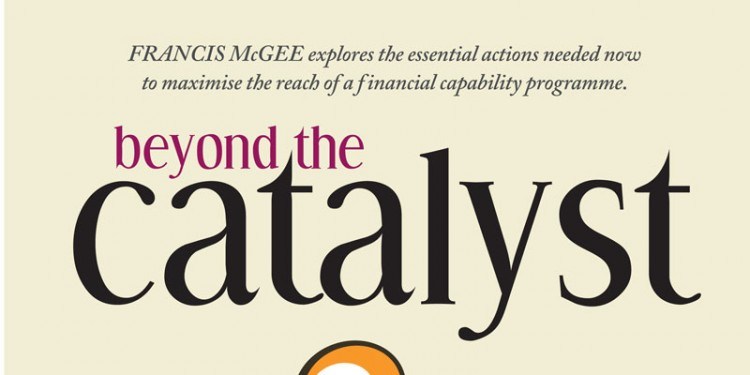Francis McGee explores the essential actions needed now to maximise the reach of a financial capability programme.
In recent years, helping Britons manage money more successfully has finally become a shared priority for regulators, politicians, educational and advice charities, as well as many in the industry.We’ve seen great progress, spearheaded by the Treasury and the Financial Services Authority (FSA) through the National Strategy for Financial Capability, their commitment to financial education in schools, and their promotion of generic financial advice.
As we look back on the financial crisis, as the recession and its aftermath cut deep into people’s lives, and as we debate what to preserve and what to cut to address our fiscal challenges, it is timely to look at what the next stage of our national financial capability agendamight look like.
Financial capability is about building skills that will enable people to cope with the ups and downs of life, and is therefore fundamental to building a more resilient economy. But to earn its place as a priority for policymakers in challenging times,we need to think how the agenda can be delivered with ever greater efficiency and effectiveness.
Firstly, we must connect the short-term help we offer people now with longer term action.The financial crisis and the recession have exposed the vulnerability of many people to financial shocks.Most people agree that weak financial capability has played a part in this, via poor spending, borrowing and budgeting habits. It would be a shame if we did not learn the lessons from this downturn to equip people against the next, and to change behaviour as we start on the road to recovery.
Please download the PDF document to read the full article.

